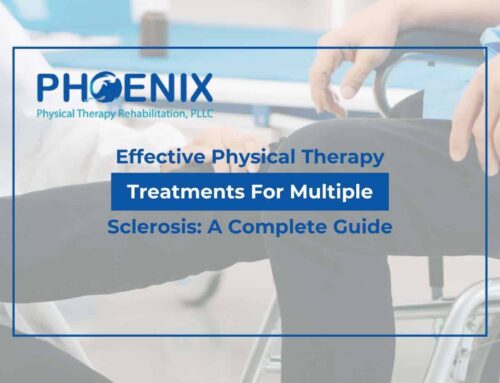Restore Balance Disorders With Expert Physical Therapists: Personalized Training & Fall Prevention Strategies

A reduced sense of balance and falling periodically can lead to decreased participation in social activities or sports, as well as a fear of walking through the street or driving a car. The truth is, the less we move, the more likely we are to keep losing our balance.
Many steps can be taken to restore balance disorders. Working with a licensed Dix Hills physical therapist and incorporating physical therapy services will allow you to receive personalized training and learn some fall prevention strategies.
Understanding The Causes Of Balance Issues: What’s Affecting Your Stability?
Balance can be described as the ability to distribute one’s weight in a way that enables us to move, sit, and stand without falling. It also allows us to recover if we trip or begin leaning to one side. Although we may not always be aware of it, our bodies consist of very complex mechanisms of balance. Sensory receptors in our joints, muscles, eyes, and inner ears gather information about our environment and send signals to our muscles to keep us balanced.
Good balance requires a well-functioning sensory system, strong muscles, and a processing system that can take sensory information and send the right signals through the brain and spinal cord to contract the appropriate muscles correctly. Many balance disorders stem from abnormalities in either the central or peripheral nervous systems. The central nervous system includes the brain, brainstem, and spinal cord. If affected, this system can impair the nerves that transmit senses and sensory information to the areas that process this information. Even without injury, the brain may have difficulties processing information, which can lead to a balance disorder.
On the other hand, Peripheral nervous system disorders involve the nerves that travel from the spinal cord or brainstem to the eyes, inner ear, joints, skin, and muscles. If these do not function properly, patients may not receive accurate information about the ground beneath their feet.

The second system is the somatosensory, which gathers important sensory information from the muscles and joints, and about how the body is positioned in space. sensory input may come from the hips and ankles, which can determine if the body is leaning to one side or another.
The last system is vision, which helps us detect changes in our surroundings and check our alignment against vertical objects in our field vision. Vision is generally used to verify information about what is happening around us. Injuries or age can modify vision and this may lead to imbalance, dizziness or falls. Weak or shortened muscles may not be able to adapt to what is happening, and may not be quick enough to stop a fall.
Effective Physical Therapy Solutions For Balance Disorders
The best thing we can do towards falling and injuries is to prevent them from happening. Physical therapists are experts in balance and have a wide knowledge of the conditions that may be causing balance disorders. Working with a skilled Brooklyn physical therapist can significantly enhance your balance. Each patient receives a thorough evaluation to diagnose the specific nature of their balance disorder. Remember, generic balance programs can’t match the effectiveness of a personalized plan designed just for you.
Some treatments to address balance disorders include strengthening your muscles, which is crucial to maintaining and recovering balance. Addressing muscle length or range of motion impairments that impact your balance center is also crucial. Professional therapists will also help patients to treat dizziness and vertigo for vestibular disorders. It is important to optimize the three balance systems by practicing exercises. A physical therapist will also teach their patients to practice fall recovery in case that happens.
Improving Balance & Mobility With Our Physical Therapy Team
Balance is key to having a good life quality. Injuries can have physical, emotional, and social ramifications, so we suggest you take the steps needed to improve your balance as soon as possible. Our Rosedale physical therapists at Phoenix Physical Therapy Rehabilitation are here to help you improve your balance. Contact us today for a first consultation.
Phoenix Physical Therapy
Dix Hills Location
105 Majestic Dr
Dix Hills, NY 11746
Phone: 347-733-1916
Rosedale Location
23520 147th Avenue, Suite 1,
Rosedale, NY, 11422
Phone: 718-481-3392
Mail: [email protected]
Brooklyn Location
7510 4th Ave., Suite 3,
Brooklyn, NY, 11209
Phone: 347-733-1916
Mail: [email protected]







